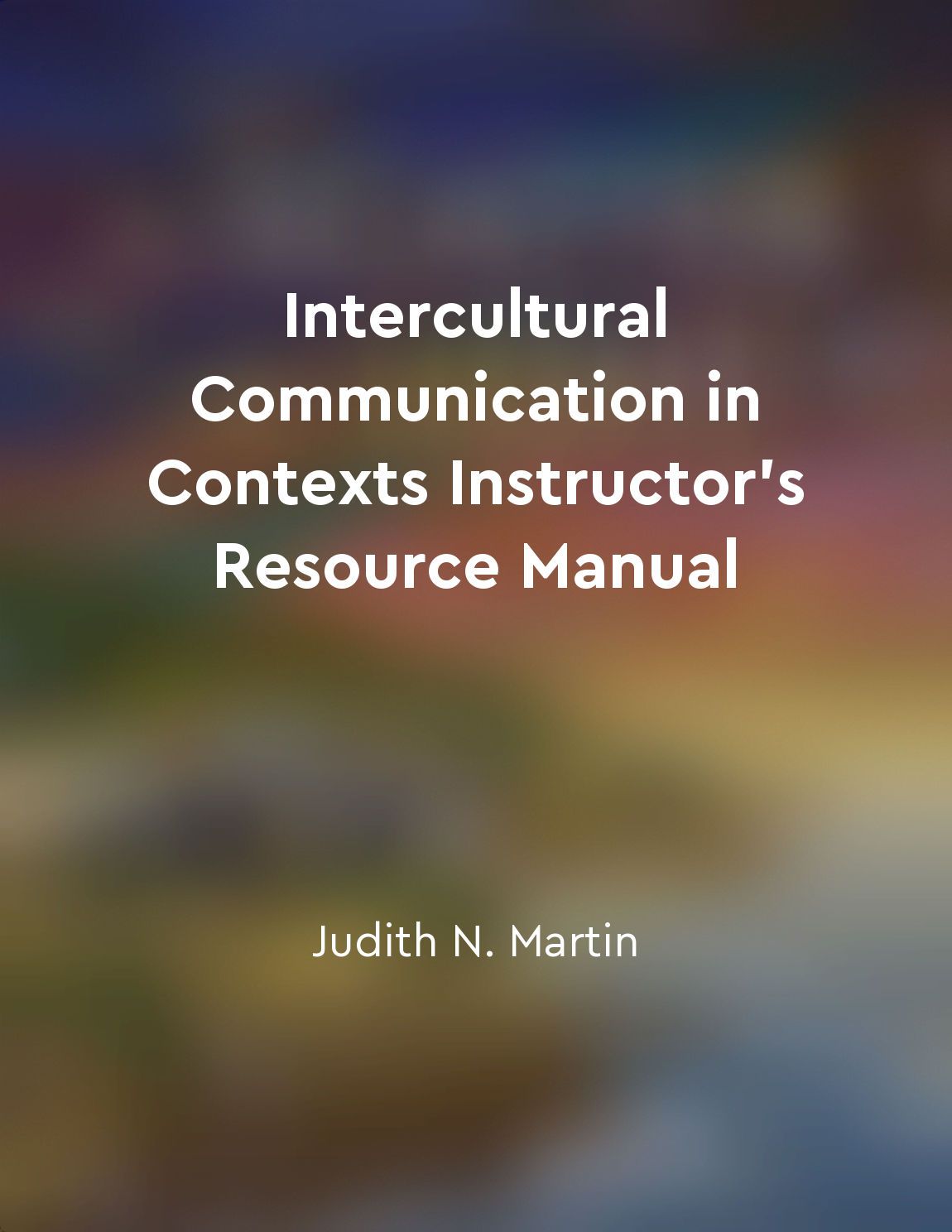Building rapport across cultures takes effort from "summary" of Intercultural Communication in Contexts Instructor's Resource Manual by Judith N. Martin,Thomas K. Nakayama,Lisa Bradford,Jolanta A. Drzewiecka
Developing strong connections with individuals from different cultural backgrounds requires intentional and sustained effort. When people from diverse cultures come together, they bring with them unique communication styles, values, and beliefs that shape their interactions. These differences can create barriers to building rapport and establishing trust. Cultural nuances, such as preferred communication methods, nonverbal cues, and social norms, play a significant role in how individuals from different backgrounds perceive and respond to one another. Without a deep understanding of these cultural differences, individuals may unintentionally offend or misunderstand each other, leading to strained relationships. To overcome these challenges, individuals must be willing to invest time and energy in learning about other cultures. This involves actively listening to others, asking questions to clarify any misunderstandings, and demonstrating empathy and respect for differing viewpoints. By showing a genuine interest in understanding and appreciating cultural differences, individuals can bridge the gap and build meaningful connections with people from diverse backgrounds. Furthermore, building rapport across cultures requires a willingness to step outside one's comfort zone and adapt to different communication styles and customs. This may involve adjusting one's tone of voice, body language, and conversational topics to better align with the cultural norms of others. By demonstrating flexibility and openness to new ways of interacting, individuals can foster trust and mutual respect in cross-cultural relationships.- Successful intercultural communication hinges on the willingness of individuals to invest the time and effort required to build rapport with people from diverse backgrounds. By approaching interactions with curiosity, empathy, and an open mind, individuals can cultivate meaningful connections that transcend cultural boundaries and create a more inclusive and harmonious world.
Similar Posts
Engaging in conversations enhances language proficiency
One of the most effective ways to improve one's language skills is by engaging in conversations. When we communicate with other...

Nonverbal cues play a significant role in communication
Nonverbal cues are an essential element in communication, often conveying more meaning than words alone. These cues include fac...

Sharing stories with loved ones
One of the most meaningful aspects of our journey was the opportunity to share stories with our loved ones. As we traveled arou...

Trust instincts but verify with facts
Trusting our instincts is a natural and instinctive behavior that we all possess. It is a gut feeling that often guides us in m...

Clear goals aid communication
Having clear goals in any communication is crucial for ensuring that your message is effectively conveyed to your audience. Whe...
Body language can be deceptive
Body language can be deceptive. You might think that you can always trust someone's nonverbal cues to determine their true thou...
Miscommunication can lead to disastrous consequences
Miscommunication can have serious and even catastrophic consequences. When individuals fail to communicate clearly and effectiv...

Remember people's names
One powerful way to make a lasting impression on someone is to remember their name. People love to hear their own name, it give...
Silence can speak volumes
In the midst of a conversation, there are moments when words seem to falter and retreat, leaving behind a heavy silence that ha...

By exploring the intricacies of language, we can uncover the rich tapestry of human expression and communication
Language is a complex and fascinating system that is central to human communication. In exploring the intricacies of language, ...


